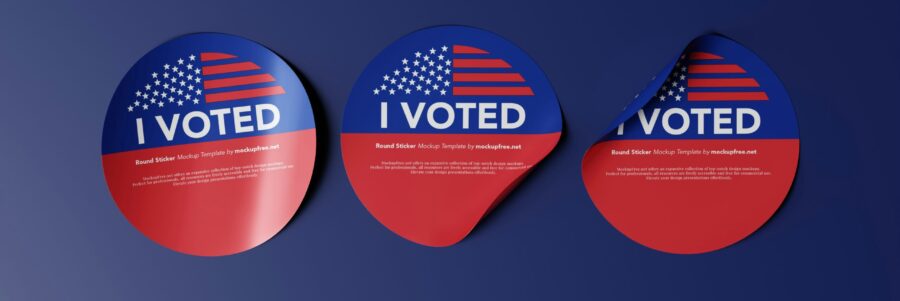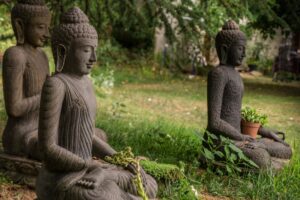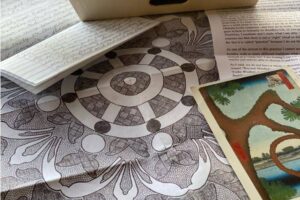What I Gonna Do Now?
Don’t know what to do?
Take a break from politics —
double down on Zen.
Well, now we know. That is, we know how the vote tally turned out. What we don’t know for sure is what will happen next. As I said in closing the last podcast, we are waiting for the next number of shoes to drop. But many of our fellow citizens are worried that they know all too well what is coming, ranging from your worst nightmare to the final establishment of Valhalla on Earth. But this time the hall will include only the living survivors, not those who died in battle, as in the Norse myth.
We have been here before politically, which will be remembered by all but those who voted for the first time in this election, who may have known only the recent history, and thus are doomed to repeat it, according to Churchill (who should know). The sanctification of former President George W. Bush by certain religious groups, particularly in his second campaign and term in office, presaged the elevation of the current President-elect to the status of being anointed by God to lead the country. Vilification by the other side reached similar levels of hysteria, if memory serves. One might regard the entire campaign as an example of confirmation bias on steroids. Both sides interpreted events — crowd size, 50-50 polls, mob hysteria at rallies — as confirming their most cherished hopes for victory. Only time will tell which, if either, is the extreme position out of touch with reality. Midterms may be the next major tilt of the teeter-totter.
Meanwhile, let us return to the central focus of Zen — reality itself, the ultimate in vacillation. Like a Taoist shaggy dog story, this may be good, but it could be bad. Through this lens, the question arises as to exactly how important — how relevant — the political landscape can possibly be, to the living-out of our daily Zen lives?
It might provide a bit of perspective to recall that Buddha did not buck the political establishment of his time in India. Which, if my poor understanding of history is correct, was based on the caste system — from the Brahmin, or priests at the top of the pyramid — to Sudra, or commoners, peasants and servants, at the bottom. Completely outside the box were the outcasts, out-of-caste members of the society — untouchables — who were employed as street sweepers and latrine cleaners. From an online search we find the following AI-assisted definition:
India’s caste system is a social hierarchy that divides people into groups based on ritual purity and is passed down through families. It has been in place for at least 3,000 years and is considered one of the world’s oldest social hierarchies. The caste system dictates many aspects of a person’s life, including their profession, who they can marry, and their social standing.
The system apparently does allow for some upward social mobility as it functions in modernity, but it appears that originally, the level into which you were born pretty much determined your fate and future in society — what degree of influence you might have on the social sphere, and its degree of influence on your personal sphere. Needless to say, it was an asymmetrical relationship at best.
Buddha was born into the Kshatriya, or warrior caste, second only to the Brahmin. Which makes me wonder if he was basically a late-blooming draft-dodger, or resistant to implementing the military misadventures of his overlords. I am fairly certain that had he been born into the lower classes, or as an untouchable, he would not have been able to carry out his program of establishing Sangha, the original order of monks and nuns. It is notable that many who joined him were of his same caste, some related to Siddhartha Gautama by blood.
It is also noteworthy that whoever initially conceived the caste system, they justified it based on a notion of inborn “ritual purity.” Compare to today’s stiff-necked, toxic, entrenched and unyielding attitudes on racial and ethnic superiority.
In the last segment I encouraged you to vote, without consideration of how you vote or for whom, other than to vote your conscience and for the future. You may have been surprised, as I was, at the outcome, either distressingly disappointed, or irrationally exuberant. In either case, I suggest tempering your expectations as to what may transpire in the next four-year cycle. Again, we have been here, done this, seen this movie, and rode this rodeo, before. The pendulum swings. Though, admittedly, if it swings too far it may break its mount.
Uchiyama-roshi, in “Deepest Practice, Deepest Wisdom,” which we have been studying in the Tuesday evening Cloud Dharma readings this year, encourages us to look at our present life as if we had been aborted at the beginning. That way, we would never even have been here to suffer the vagaries of our lifetime.
A less extreme thought experiment is to imagine that you were born into another period in history. In any time, if you lived to the full “three-score-and-ten” lifespan of tradition, the passing political pageantry of a given period may or may not have had any substantial effect upon you. You may have perished in the Revolutionary War, or been enslaved during the Civil War, or you may have been so far removed from the fray that you survived relatively unscathed. In the context of geologic time, a human lifetime is equivalent to the blink of a gnat’s eyelash in human time.
In any case, how you lived and died mattered more within your personal sphere of experience and influence, than did the likely impact of your life on the social sphere. It is an asymmetrical relationship at best, and even more so as regards the natural and universal spheres. You may counter with the “great man” theory of history, but that assumes a lot, is over-simplistic, and in any case applies to very few individuals. Most of us are statistical placeholders.
So, what to do? I like the old aphorism, “tend to your own knitting.” Not much actual knitting is going on these days, of course, but it points to the same idea as Matsuoka-roshi’s response to the question of how to take up so-called “engaged Buddhism.” He would assume the zazen posture and say:
This is the most you can do.
A more ancient saying from a Ch’an poem of about 600 CE — third patriarch Sengcan’s Hsinhsinming; Trust in Mind — takes this idea to a new, nondual level:
In this world of suchness there is neither self nor other-than-self
To come into harmony with this reality
just simply say, when doubt arises, “Not-two.”
In this “not-two” nothing is separate, nothing is excluded.
No matter when or where, enlightenment means entering this truth.
So I suggest that when doubt arises in the context of concerning and confusing developments in the social sphere — or even the natural or universal spheres — that we simply double down on Zen. In Zen, even the opposing political parties and their policies are “not-two.” This is not simple. Nor is it easy.
But where are you going to find the answers to the social and political dilemmas we face today, if not in your meditation? Remember the old spiritual, “O sinner man, where you gonna run to? All on that day?” Well, every day is “that day” in Zen. I remember an old friend quoting an Indian guru, repeating over and over: “Every day, every day, every day — you must die a little to become the Buddha!” He would do it with an exaggerated East Indian accent, his voice rising higher and higher with each recitation, until he had you in stitches, your stomach hurting from laughing. But, you say, this is not a laughing matter. Are you so sure?
It’s either laugh or cry, as we say. Only you can determine whether your life is a melodrama, a tragedy, a comedy, or a tragicomedy. The frustration we feel in our inability to influence the outer spheres of our reality to move in the direction we want to see them evolve stems mainly from the futility of any such endeavor. The most we can do to have a direct influence is to put our attention and effort into the personal sphere, beginning on the cushion. The ripple effect hopefully ensues.
The Bodhisattva Vow to “save or free all beings” is not a directive to take to the streets and lead the charge toward the elusive “arc of the moral universe bending toward justice.” MLK was a modern bodhisattva who appreciated the limits of what he could do in this regard, but expressed a deep faith that however futile his efforts might be, this is the inevitable direction of existence. In Buddhism, it is the wisdom of waking up to reality, in which we pray “May all beings be happy.” But with reality as it actually is, with aging, sickness and death baked into the cake.
By their example, bodhisattvas help all beings to save themselves from their own ignorance, beginning at home, like any form of charity, and up close and personal. We have to get our oxygen mask firmly in place before we can effectively help anyone else. We do so by sharing with them the excellent method of zazen.
In the next episode of UnMind, the last segment of 2024, we will return to our primary focus on the practical aspects of Zen in daily life. The “design intent” of Zen and zazen, so to speak. Stay tuned. 2025 is the 85th anniversary year of Matsuoka-roshi’s coming to America. Please celebrate by intensifying your practice.









